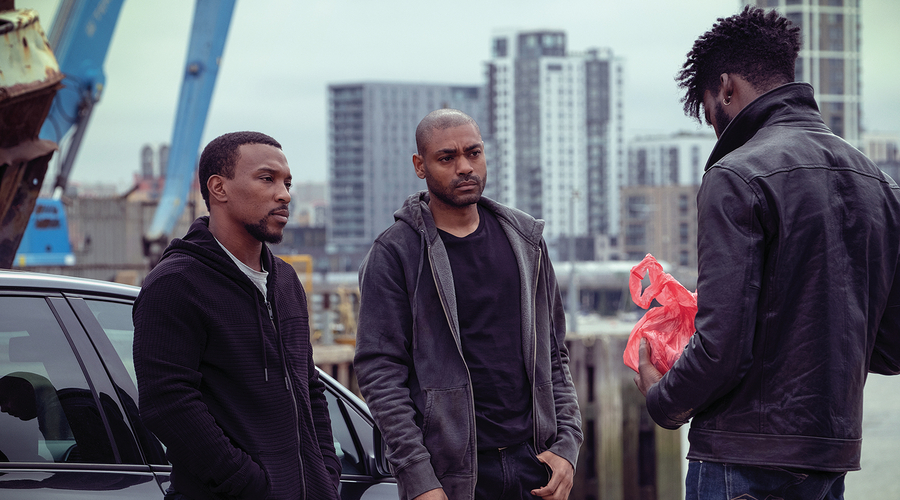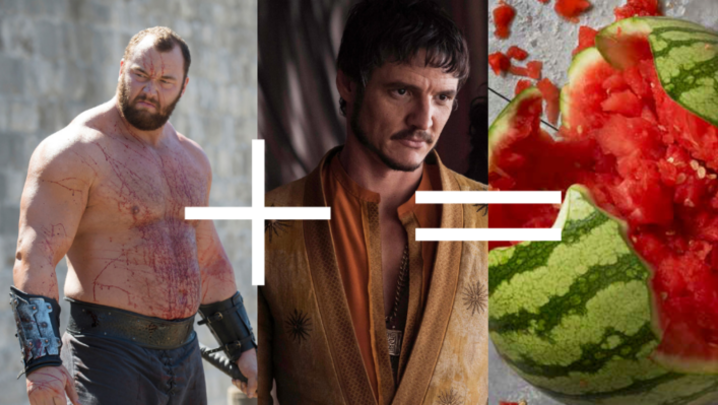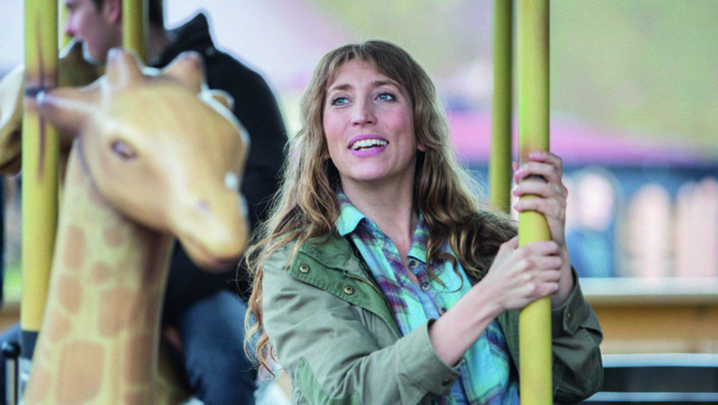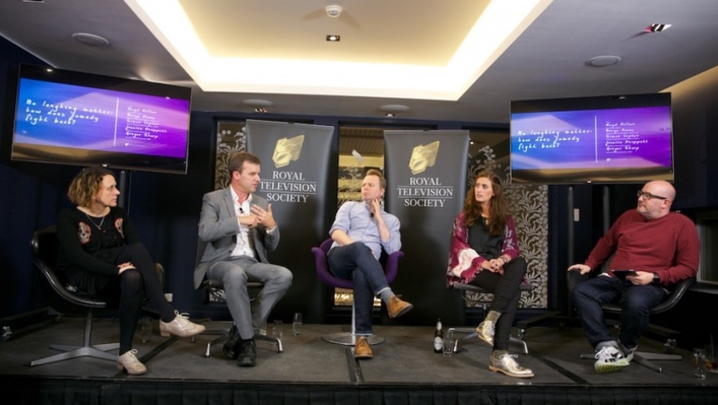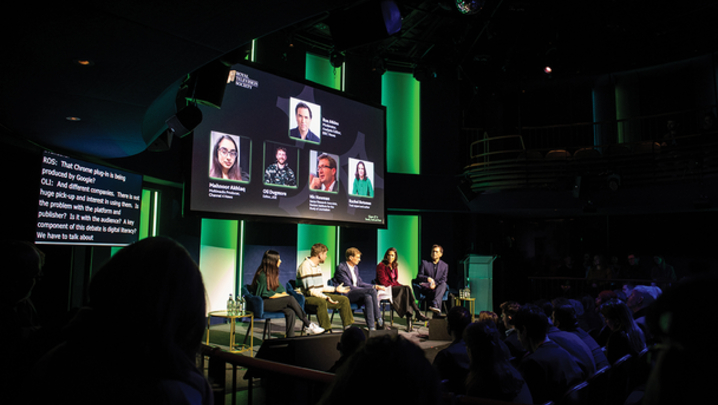As the gangland drama reaches its finale, Shilpa Ganatra reveals how the series broke new ground in nurturing black talent
It’s no easy task to think of a programme that’s done more for cutting-edge British drama than Top Boy. Having made its debut on Channel 4 in 2011 and running for two series before Netflix revived it for a further three, the gritty drama follows the drug gangs of London’s fictional Summerhouse estate in Hackney with exemplary authenticity.
The series has helped nurture major stars such as Letitia Wright, Michaela Coel and Micheal Ward and served as a nursery for young talent behind the camera. And, crucially for disenfranchised audiences, it has reinforced the link between youth culture, music and mainstream television: revered artists such as Kano, Little Simz and Dave are all featured. Critics and awards juries have heaped praise on Top Boy – series 1 won the RTS Drama Serial award in 2012 and several commentators saw the show as British TV’s equivalent of The Wire.
Sadly, all good things come to an end. The upcoming series of Top Boy will be its last, no matter how much Top Boy enthusiasts – including Canadian rapper Drake, who campaigned for the Netflix revival – protest (Drake is an executive producer on the show).
Co-director William Stefan Smith says: “It’s the British way. Historically, British shows end early. We don’t push them into six or seven seasons.”
It’s especially apt because of the subject matter, says Jasmine Jobson, who stars as the gang’s main female member, Jaq. “We’re showing the public that there’s only so far you can go. You can end up in prison, you can end up dead, but every top boy has to come to a stop at some point. You don’t see 60- or 70-year-old top boys, unless it’s the mafia. So I feel like we’re doing the right thing.”
Across the five series of Top Boy, created and written by Ronan Bennett, we’ve seen gang leaders Dushane (Ashley Walters, formerly of So Solid Crew) and Sully (Kane Robinson, aka Kano) grapple with inside and outside threats to retain dominance of their patch. The finale finds more trouble at the top, in the form of an Irish contingent, played by Brian Gleeson and Oscar-nominated Barry Keoghan. At the same time, the younger generation of Summerhouse residents, including Stefan (Araloyin Oshunremi) and Aaron (Hope Ikpoku Jnr), come into their own.
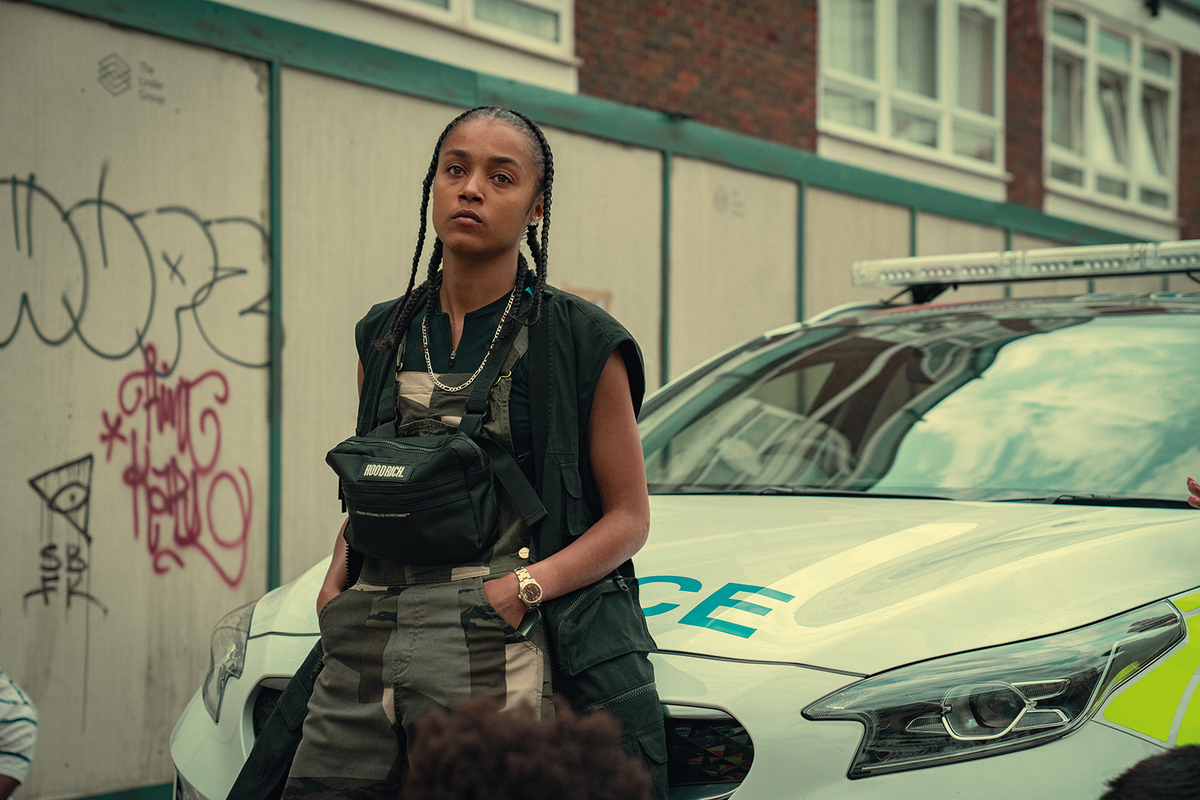
Lead director Myriam Raja explains: “You can feel how Dushane and Sully have progressed and are getting older by how their scenes feel more stylised. Whereas, with the youngers, there’s still an element of realism and grittiness.”
To allow the actors the freedom to improvise – a key element in giving Top Boy its freshness – she kept plans loose. “That meant not having too much lighting on set, so the camera could just move with them. It was important because some of the actors, especially the young ones, are non-actors, so it might be their first time on set.”
While the plot of the finale was kept under wraps – most of the crew didn’t see the scripts until shooting day – Smith has continued to push the envelope. He recalls the opening two-and-a-half-minute scene of the final episode: “I wanted it to be one shot, but it was a hard ask. There were around 150 background artists involved, the camera was moving constantly, we had BMX riders and stunt drivers, so we had to make sure they didn’t hit the cameras or non-stunt people. We [also] had a limited supply of a crucial prop. And it had to look real.
“We tried to do it twice, and we broke the prop twice. We had one more throw of the dice, so we asked ourselves if we could break up the scenes to be safe. But we were so excited, we gave it one more try and we pulled it off. The entire crew was so happy. In the end, I was thankful I didn’t compromise, even if it was scary.”
Smith, winner of the Director: Fiction award from Bafta for series 4 earlier this year, describes the crew as “the most diverse I’ve ever worked with”, adding that “the production assistants were black, the gaffer was black, the costume designer was black. The head of make-up was black”.
Raja, who hails from a working-class Pakistani background, began on Top Boy as part of the show’s mentee scheme after graduating from the National Film and Television School, and winning an RTS Student Television Award for Tehzeeb, her graduation short from Bournemouth Arts University.
She shadowed director Aneil Karia during the third series. “That was important because it was my first time stepping on to a TV set. I got to be a sponge and watch everything happen,” she says. After the experience, she stayed in touch with the producers and asked them for more work until she was given an episode to direct. And then another four.
“The crew is diverse and young, and some of the crew members on this season had also progressed in their own departments. That meant, when I stepped on set, there was no feeling of intimidation, of whether I deserved to be in that space,” adds Raja.
On-screen representation is, of course, key to Top Boy’s success. The characters have been the viewers’ window into social-housing life, street lingo included (a bit of “food”, anyone?). And those who’ve lived it see themselves in the show.
Top Boy made a big impact when Channel 4 first aired it in November 2011. It helped that its four episodes were shown on consecutive nights. Critics seized on its originality and a second season was ordered quickly.
When the series resurfaced on Netflix, Drake said: “There are a lot of parallels between Toronto and London – we don’t have the same accent, obviously, but we do speak the same. I felt super connected right away.”
Because of the world they depict, storylines tackle such issues as mental health, gentrification, deportation, racism and gang violence.
"There's the old argument that there's not enough black talent in the screen industry. Well, there is. We've seen it"
If there is a criticism that dogs Top Boy, it is that it unhelpfully perpetuates a stereotype conflating black people, social housing, gangs and violence. Jobson denies the charge: “We’re drilling very deep, and humanising these characters,” she says. “Look at Jamie, who has to act as a dad to his two younger siblings. Or Jaq: she has to keep a roof over her and her sister’s heads. If they had a choice, they would not do the stuff we’re portraying. If anything, by humanising them, we’re removing the stereotype.”
While Top Boy is about to take its last bow, its legacy is clear. “There’s the old argument that there’s not enough black talent in the screen industry. Well, there is. We’ve seen it,” says Smith. “Top Boy took risks on people, and now the crew have gone on to work on things such as Bob Marley: One Love, Dreaming Whilst Black, Queenie, Champion and Grime Kids.”
Raja is working on two feature films, while Jobson will soon return to our screens as the lead in the ITV thriller Platform 7. Ashley Walters moves behind the camera, co-directing Stephen Knight’s Disney+ series A Thousand Blows. Kano is starring in Netflix’s dystopian drama The Kitchen, penned by Get Out star Daniel Kaluuya. And that’s just the tip of the iceberg.
“The real thing that Top Boy should be praised for is allowing its creatives to work on something we believe in,” says Smith. “That’s why I’m not so sad about Top Boy calling time, because it’s opened up the doors for so much more.”
The final series of Top Boy is available on Netflix from 7 September 2023.

